When abusive people, those who misuse the power entrusted to them, face accusations of misconduct, they deflect the blame toward the one who has been abused.
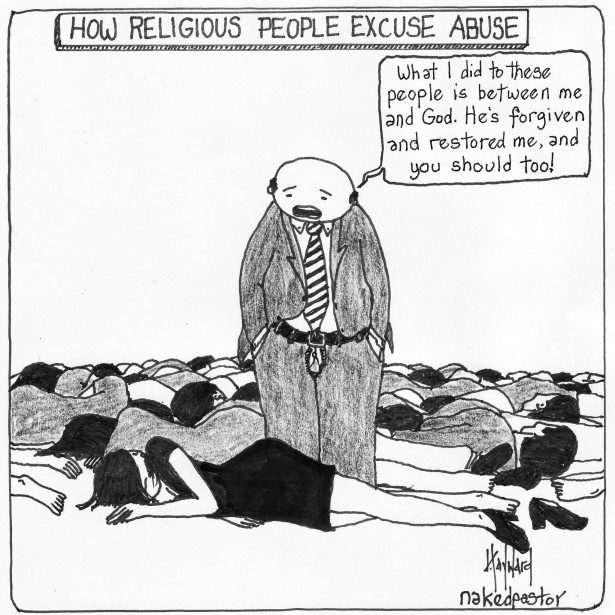
Dear Thoughtful Pastor: Why is it always the abusers and their advocates that concoct numerous ways to forgive them?
Here is my experience. Abusers are usually sincere. They don’t think they’re abusing. So they justify and validate their behavior with rationalities. But when they do realize they inflicted abuse, they impose legislation on the victim on how they should respond.
They employ scripture verses that were meant for victims for their own protection, like “The Bible says you should forgive me seventy times seven!”
“It’s unkind and not Christ-like of you to withhold forgiveness from me, especially when I apologized!”
“Now I feel bad, which makes you no better than I!” And so on. They create steps the victim must climb to alleviate their guilt.
Recently I told someone that they were rude to me, and they said I was rude to say that to them and make them feel bad.
Oooooh, I can add a few to that.
For a woman whose husband has injured her, certain “Bible-believing” abusive pastors might announce “He rightly exercises his authority over you. If you would just submit and quit being so independent, he wouldn’t have to hurt you. You need to forgive, forget and behave better in the future.”
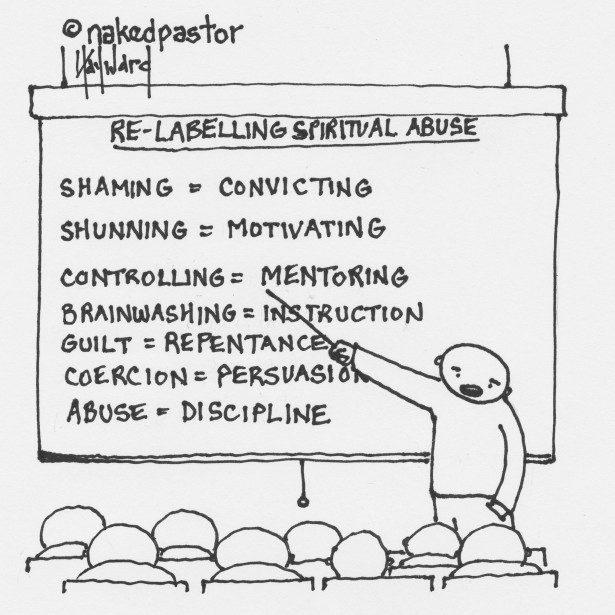
Or, how about the one who has just showered a subordinate, desperate for employment and vulnerable to being fired, with verbal insults, “You are so sensitive! Grow a thicker skin and shut up.”
Is this the kind of stuff you are talking about?
Defining abusive people
The definition of abuse as I see it: Any situation where those with the most power, economic, social, religious, sexual, etc., treats those with less power in a way they would hate to be treated themselves.
Remember: power imbalances are normal and unavoidable. Every society, business, religious institution, neighborhood club, athletic team, or any other gathering of people functions because some have more power and some have less. It’s not just chickens that establish pecking orders!
In more just societies, those who have more power intentionally acknowledge their responsibility to help those with less power. As a particular person we know of named Jesus says, “The first must be last in the kingdom of heaven.” AND, “To whom much has been given, much is required.”
In less just societies, those with more power seek to secure their position by doing whatever possible to keep the less-empowered consistently below water, struggling to find air.
Abusive people hoard power
Remember, the hardest thing for a person to relinquish is power–and the pride and inflated sense of self it often brings.
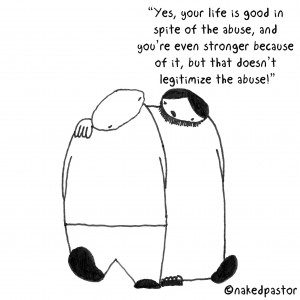
When abusive people, those who misuse the power entrusted to them, face accusations of misconduct, they deflect the blame toward the one who has been abused. They insist they are the victims. In this way, they keep the upper hand in negotiations.
For example, what does a rapist say? “If she had not been dressed that way or had not drunk so much, I would not have done that. It’s her fault.”
What does the verbal abuser say? “You have hurt my feelings by calling attention to my abuse of power. I’m the one who needs to forgive you.”
What does the power-drunk religious leader say? “I’m only telling you that you have no right to question me and my decision to put you under church discipline. I’m God’s servant, accountable to God, not you.”
The more the true victims of power imbalances speak of the wrongs they suffer, the more the abusive people, the ones with the power who inflict and perpetuate the wrongs, will twist the scenario.
The simple technique you so eloquently stated, “imposing legislation on the victim on how they should respond” works perfectly to maintain power.
The healthy response: get out
So, what’s the healthy response? Refuse to participate in the cycle. Walk away. Remove yourself as fully as possible from the unhealthy power balance. As you are able, release them internally for the sake of your inner peace, but do so only while maintaining your own mental, physical, emotional and spiritual freedom.
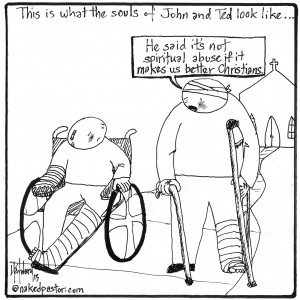
There are times when complete removal from the abusive party cannot be an option. There are times when standing firmly for your freedom from that misuse of power can bring death, both figuratively and literally.
But no matter how limited the options become, you stay free by refusing to blame others for whatever choices you make. Eliminate forever the “I had no choice” phrase from your mindset. When you do, you become a participant in the stories of the early Christian martyrs, of the brave people of Masada, of Harriet Tubman, Martin Luther King and Rosa Parks, of the followers of Gandhi on the great salt march.
Abusers always use power to limit freedoms of the less powerful. When the oppressed courageously choose freedom, no matter how small the freedoms may be, the power returns to them.
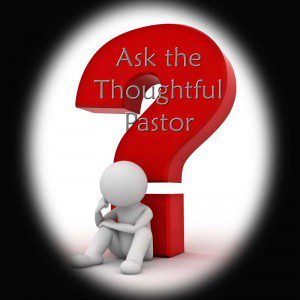 [Note: A version of this column is slated to run in the May 5, 2017, edition of the Denton Record-Chronicle. The Thoughtful Pastor, AKA Christy Thomas, welcomes all questions for the column. Although the questioner will not be identified, I do need a name and verifiable contact information in case the newspaper editor has need of it. You may use this link to email questions.
[Note: A version of this column is slated to run in the May 5, 2017, edition of the Denton Record-Chronicle. The Thoughtful Pastor, AKA Christy Thomas, welcomes all questions for the column. Although the questioner will not be identified, I do need a name and verifiable contact information in case the newspaper editor has need of it. You may use this link to email questions.













